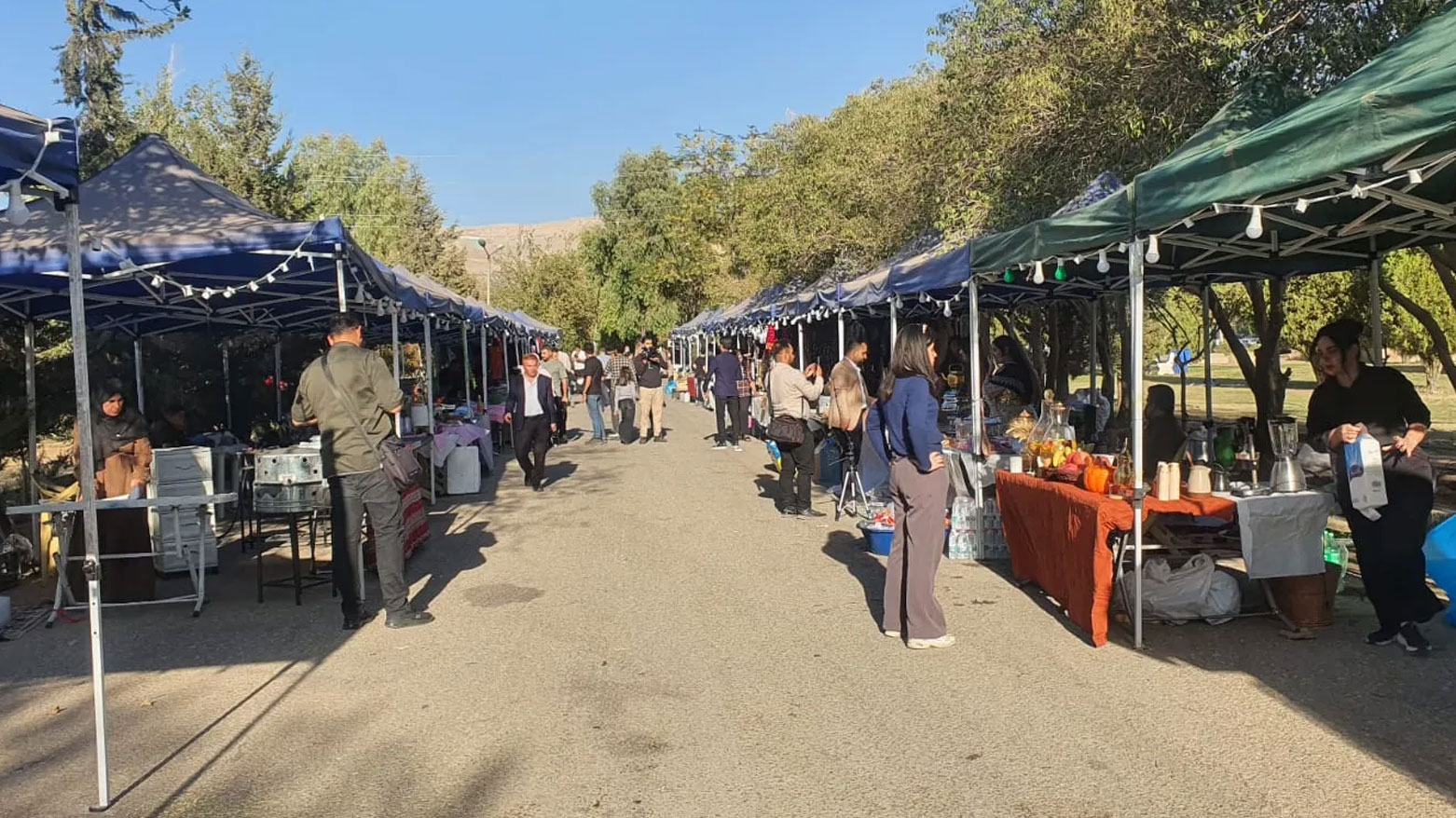Sulaimani Hosts Festival in Honor of Martyrs' Families
Sulaimani is hosting its third annual Festival for the Families of Martyrs, offering free cultural events and exhibitions led by the families to honor their sacrifices. The Directorate of Martyrs Affairs organizes the event to support and recognize their contributions.

ERBIL (Kurdistan24) – In a vibrant display of solidarity and remembrance, the city of Sulaimani has launched the Festival for the Families of Martyrs, a special cultural and humanitarian initiative dedicated to supporting and honoring the families of those who lost their lives for the Kurdish cause. Citizens from all parts of Kurdistan Region flocked to the event grounds to express their support and share in the spirit of gratitude and unity.
According to Mahmud Sarmordi, Head of Public Relations at the Directorate of Martyrs Affairs, who spoke to Kurdistan24, “As the Directorate of Martyrs Affairs, we are constantly seeking opportunities to serve and support the proud families of our martyrs. Every initiative that eases their burdens or uplifts their morale is part of our mission.”
Sarmordi added that this year’s festival was organized with a special focus on inclusivity and community engagement. “We noticed that many of the martyrs’ family members are already active participants in cultural and social gatherings. Therefore, we decided to create a festival where all services and activities would be offered free of charge to them. It is our way of acknowledging their sacrifices and giving back to them,” he explained.
The festival featured a diverse range of exhibitions, performances, and culinary displays — all led by women from the families of martyrs. Kwestan Ahmed, one of the participating women, expressed her appreciation in an interview with Kurdistan24: “I extend my gratitude to the Directorate of Martyrs Affairs for organizing this festival for us, the families of martyrs. I truly hope it continues every year because other festivals have become too expensive for us to attend. This one belongs to us.”
Ahmed, who participates annually by presenting her handmade crafts and traditional Kurdish dishes, emphasized that the festival offered not just economic relief but also emotional healing. “Through our work, we express our pride and keep the memory of our loved ones alive,” she said.
Throughout the venue, colorful booths showcased Kurdish handicrafts, woven textiles, and regional cuisines such as dolma, biryani, and qawarma, all prepared by the widows, mothers, and daughters of martyrs. The festival was also enlivened by music, poetry readings, and children’s activities, creating an atmosphere of collective pride and remembrance.
This year marks the third consecutive edition of the festival, which has become an annual symbol of recognition for martyrs’ families. The event runs from October 15 to 19, opening daily from 3:00 p.m. until 11:00 p.m., welcoming thousands of visitors eager to pay tribute to the families’ strength and contribution to Kurdish society.
Organizers said each corner of the festival had been arranged by the families themselves to highlight their resilience, talent, and enduring love for their homeland. Some displayed artisanal works, while others offered visitors homemade Kurdish meals, creating a setting that connected art, culture, and sacrifice.
Sermordi reiterated that such events are vital for maintaining the connection between the community and the families who bore the heaviest cost of the nation’s struggle. “Whether it is a major operation, a festival, or a small act of recognition, we will continue our efforts to serve these families. Their dignity is a reflection of our collective moral responsibility,” he stated.
The festival stands as both a commemoration and a renewal of Kurdish identity — where remembrance is intertwined with creativity and communal strength. Citizens who visited from across the Kurdistan Region described it as a “living tribute” that honors sacrifice through culture and unity.
As the festival continues through the week, its message remains clear: while the martyrs may no longer be present, their families carry forward their legacy through art, perseverance, and love for Kurdistan — a homeland whose heart beats through their resilience.